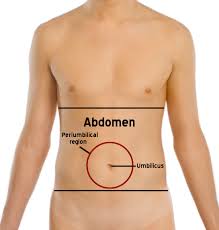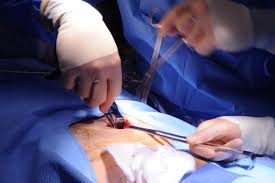CALL TODAY 646-846-1136 | EMAIL
Abdominal Hernia Repair
Abdominal hernias account for hundreds of thousands of surgical procedures every year. Even within the category of abdominal hernias, there are many different hernias that can occur. In addition, everyone will present a little bit differently with regard to how their hernia affects them. You may wonder, though, what exactly is a hernia? How can a hernia affect your life? What are the treatment options available to you?
What is a Hernia?
In the body, the internal structures, including organs and other tissues, are held in place by muscles that are kept tight and strong. A hernia is found when a section of soft tissue, commonly the intestines, pushes through a weakened section of the abdominal muscle wall that typically holds it in place. This can happen for a number of reasons, all of which are related to increased pressure within the abdominal cavity. For example, bending over and lifting a heavy object compresses the space in the chest and puts added pressure on the abdominal cavity. The small section of tissue that is expelled is the hernia.
How Does an Abdominal Hernia Affect you?
 Even though many people may have the same type of hernia, or a hernia in the same region, they will not all have the same symptoms. For some people, they may not even know about their hernia until a doctor finds it on a routine physical exam. For others, the hernia may become painful in the moment it is formed.
Even though many people may have the same type of hernia, or a hernia in the same region, they will not all have the same symptoms. For some people, they may not even know about their hernia until a doctor finds it on a routine physical exam. For others, the hernia may become painful in the moment it is formed.
Some hernias are not, on their own, harmful. Most often, though, a hernia is painful, especially during strenuous activity, such as lifting or heavy coughing. This hernia can also cause additional problems, such as intestinal blockages or infection. Usually, though, a hernia is found either on accident or during a particularly rigorous task. In fact, many people have hernias for years before even being aware of their presence.
How can you Treat an Abdominal Hernia?
 The first and most important principle in treating an abdominal hernia is not making it worse. This includes limiting bending and heavy lifting, utilizing proper body mechanics principles, and trying to limit strain on the abdominal wall. If the hernia is known to have been caused or exacerbated by a persistent cough, trying to remedy the cough will be a high priority as well.
The first and most important principle in treating an abdominal hernia is not making it worse. This includes limiting bending and heavy lifting, utilizing proper body mechanics principles, and trying to limit strain on the abdominal wall. If the hernia is known to have been caused or exacerbated by a persistent cough, trying to remedy the cough will be a high priority as well.
It will also be important to monitor the hernia closely. If the hernia changes size, becomes warm, or becomes more painful, it will be important to alert your doctor. This can be a sign of infection, which can lead to many complications.
No matter what the cause of the hernia was, though, hernias cannot repair themselves. If you decide that the hernia needs to be repaired through surgery, call the best surgeons in NYC. There are a number of different procedures that can be followed to help treat a hernia. For example, hernioplasty can be performed. During a hernioplasty, the herniated protrusion is pushed back into place behind the muscle wall and a small piece of mesh is placed over the hole. This allows for greater stability and decreased risk of further herniation. In other cases, the muscular wall can simply be stitched up, with no additional hardware required.
Do you have an abdominal or other type of hernia? Not sure what to expect? Call the best general surgeons in NYC so we can figure out how we can best handle your case.
Lenox Hill Minimally Invasive Surgery
117 E 77th Street
Suite 1A
New York, NY 10075
———
References

